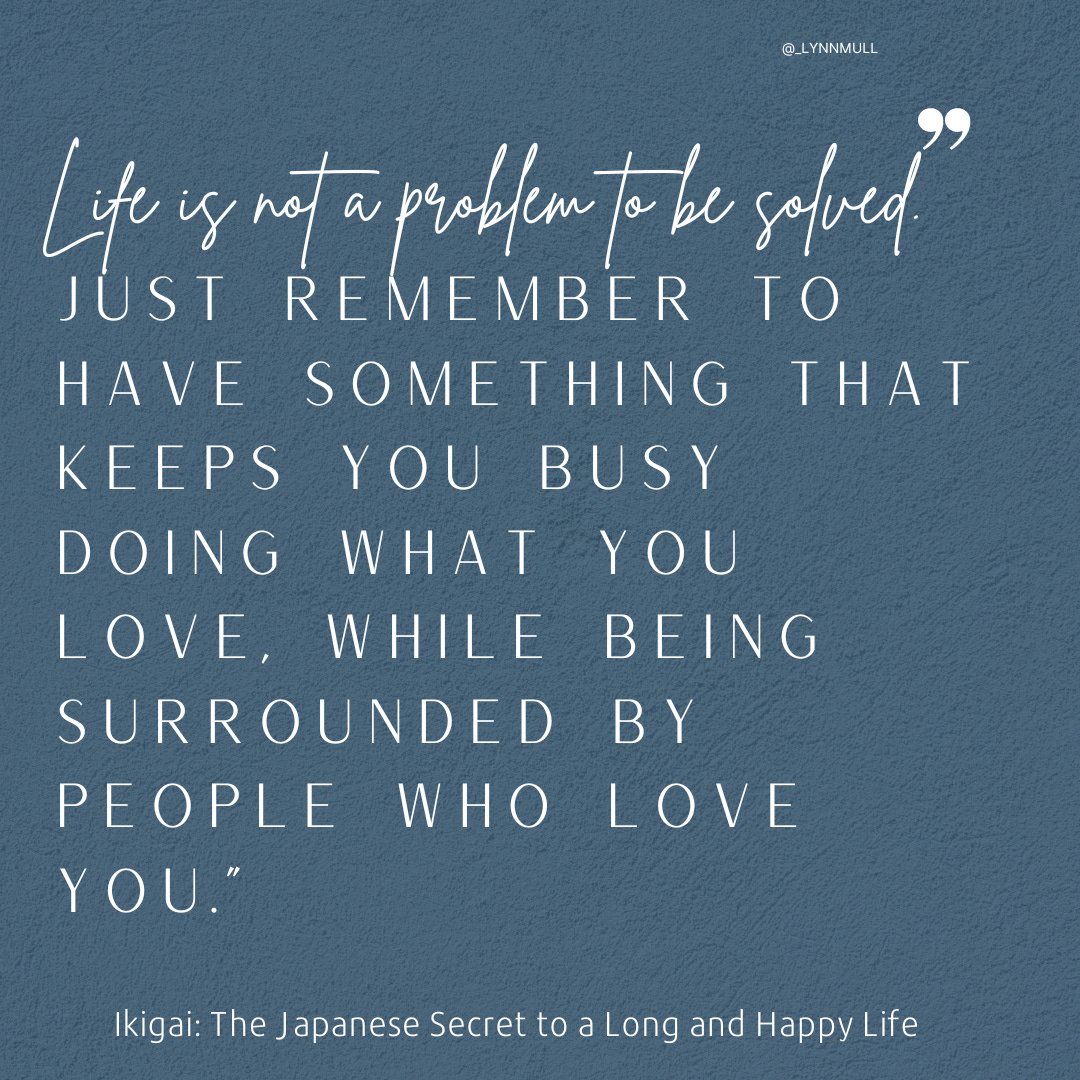Having studied Reiki, a Japanese practice, I find myself drawn to the life well lived in that country. Specifically, the episode of the blue zones on netflix focused on the community of women of Japanese women creating community over simple fun. They sing, gossip, drink tea, dance and play games into their 90s.
My research continued on how they differ from Western hustle culture. The Japanese reflection on Ikigai and its connection to global concepts of purpose—such as Dharma, Kumu, Propositum, and Objetivo—underscores how different cultures seek meaning in life. Ikigai, the Japanese notion of “a reason to wake up each day,” shares common threads with these other terms:
Dharma (Hindu and Buddhist principle of life’s duty)
Kumu (Hawaiian for teacher or foundation)
Propositum (Latin for intention or purpose)
Objetivo (Spanish for life’s objective)
Each of these reflects a multidimensional approach to purpose. In Japan, particularly in Okinawa—a place known for its centenarians—people across all ages find meaning, whether they’re working professionals, children, or grandparents.
The Blue Zones are technically five regions around the world where people regularly live to be 100—basically, Earth's VIP longevity clubs. They thrive on plant-based diets, strong community ties, and somehow managing to dodge stress like it’s their full-time job.
In the Netflix series Live to 100: Secrets of the Blue Zones, research highlights that living a long, healthy life is intertwined with working towards meaningful goals. When I attended a Blue Zone talk last week, Danny, the Chief Development Officer, emphasized that the key to longevity is multidimensional—combining factors like community, joy, and feeling needed. These factors reflect a life of purpose, not measured by a single metric of happiness, but by smaller, meaningful moments that accumulate over time.
For those who feel disconnected from their purpose—perhaps focusing more on day-to-day obligations like paying bills—there are ways to reframe this conversation:
Explore Your Strengths: What are you exceptionally good at? Consider everything, from the smallest skill to universal mastery, and take ownership of your abilities.
Reflect on Your Impact: Journal about the ways you positively affect your world, home, and community.
Identify Your People: When thinking about who you want to help through your work, ask yourself—who do you feel called to support? Is it adults, kids, groups, men, women?
Pro Hint: My Clarity Map helps clients work through these prompts easily and repeatedly.
As the book Ikigai: The Japanese Secret to a Long and Happy Life reminds us: “Life is not a problem to be solved. Just remember to have something that keeps you busy doing what you love, while being surrounded by people who love you.”






